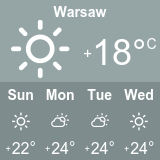Germany, France and Denmark have asked the European Commission for permission to extend checks at the borders of the Schengen area.
The German government informed on Thursday that in November it would extend checks to parts of its borders for another six months. German Interior Minister Thomas de Maiziere said that the country’s authorities intend to continue to control the German-Austrian border and planes arriving from Greece. He justified this with “significant illegal migration” and an increased security threat in Europe.
Due to the migration crisis and terrorist threats, Germany, France, Austria, Sweden, Denmark and Norway have reintroduced partial border controls for six months. This period was extended twice; currently valid until November 11, 2107 (in France until October 31).
In the light of the current regulations, a further extension of inspection periods is not possible. This possibility is foreseen by the European Commission proposals presented recently, which must be approved by both the European Parliament and the Member States. A spokesman of the European Commission did not want to express his opinion on the legal status of sent notifications, explaining that the EC must first get acquainted with them.
In September, European Commissioner for Migration Dimitris Avramopoulos proposed a new resettlement system and the possibility of extending the internal control periods in the Schengen area. The package of proposals presented by Awramopulos included regulations on the creation of a new EU resettlement program and extension of exceptional periods of restoration of controls at the internal borders of the zone.
The proposals were designed to balance the freedom of movement and mobility on the one hand and security on the other. “We can only achieve this thanks to the coordinated and uniform Schengen framework, which should also include Romania and Bulgaria” – he stressed.
The Commission’s main request is to extend the period during which a Member State, due to a “serious threat to public policy or internal security”, imposes controls at the internal borders of the Union, from six months to a year. At the same time, it introduces stricter procedural requirements, including requires Member States to carry out an analysis to determine whether existing threats could not be addressed more effectively by alternative means.
Under the proposed rules, EU countries will also be able to exceptionally prolong the period of control if the same threat persists for more than a year and if, in order to address this threat, they apply appropriate exceptional national measures on their territory, for example by establishing a state of emergency. Such an extension would require a recommendation from the EU Council, which would have to take into account the opinion of the Commission. The maximum extension period would be six months, but this option could be used no more than three times in a maximum of two years.
Currently, the Schengen area comprises 26 countries, of which 22 belong to the EU: Austria, Belgium, Denmark, Estonia, Finland, France, Greece, Spain, the Netherlands, Lithuania, Luxembourg, Latvia, Malta, Germany, Poland, Portugal, the Czech Republic and Slovakia, Slovenia, Sweden, Hungary and Italy as well as Iceland, Liechtenstein, Norway and Switzerland.
